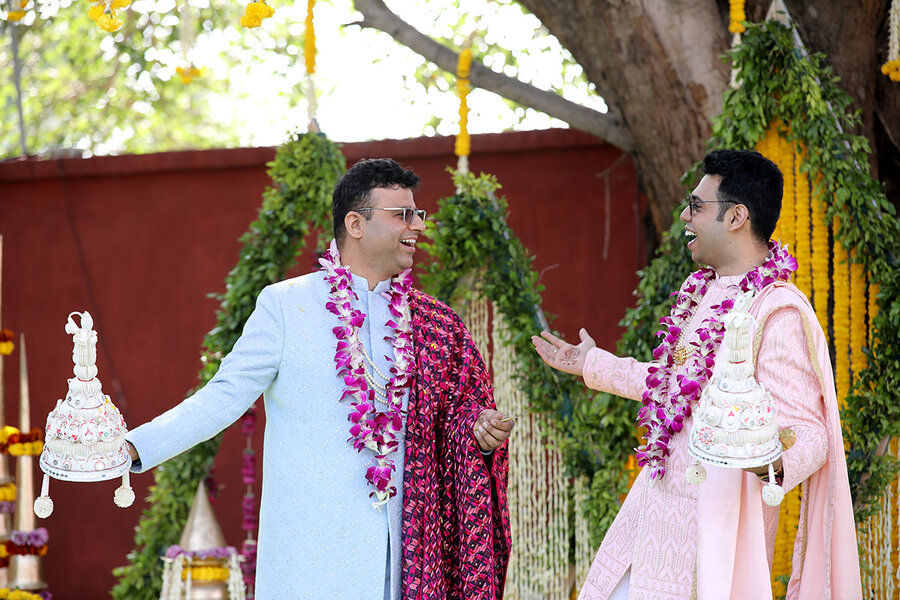Same-Sex Marriage in India
The fight for LGBTQIA+ rights in India has seen significant milestones in recent years. However, the question of same-sex marriage remains a contentious issue. In October 2023, the Supreme Court's verdict on the matter brought both disappointment and a glimmer of hope.
The Court's Decision: No to Same-Sex Marriage, Parliament Holds the Key
In a unanimous decision, the five-judge bench of the Supreme Court declined to legalize same-sex marriage. The court also, in a 3:2 verdict, rejected the recognition of civil unions for LGBTQIA+ couples. This decision dashed the hopes of many who saw marriage equality as the next logical step towards a more inclusive society.
However, the court's verdict wasn't entirely negative. The Chief Justice, in his judgement, acknowledged that the concept of marriage is not static and could evolve. More importantly, the court placed the onus of legalizing same-sex marriage on the legislature – either Parliament or the state legislatures. This shift opens a new avenue for legislative action and paves the way for future legal battles.

The Current Landscape: Limited Recognition
As of today, India does not recognize same-sex marriage or civil unions. The legal framework offers some limited recognition through the concept of live-in relationships. However, these relationships lack the legal weight and benefits associated with marriage, such as inheritance rights, hospital visitation rights, and social security benefits.
This lack of legal recognition creates significant hardships for same-sex couples. They are denied the social and financial security that marriage provides. Additionally, the absence of legal protections can make them vulnerable to discrimination and exploitation.
The Path Forward: Advocacy and Legislative Action
The Supreme Court's verdict, while not granting marriage equality, presents an opportunity for the LGBTQIA+ community and its allies to push for legislative reform.
- Raising Awareness: Public education campaigns are crucial to foster a more inclusive society. Spreading awareness about LGBTQIA+ issues and the benefits of same-sex marriage can help shift public opinion and garner support for legislative change.
- Engaging with Lawmakers: Building strong relationships with legislators at the national and state levels is vital. Advocacy groups can lobby for legislative proposals that recognize same-sex marriage or civil unions. Sharing personal stories and highlighting the human rights aspect of the issue can be powerful tools for persuasion.
- Learning from International Examples: Countries like the United States and several European nations have legalized same-sex marriage. Studying their legal frameworks and the impact of these laws can provide valuable insights for India's lawmakers.
Potential Challenges and Obstacles
The road to same-sex marriage in India won't be without challenges. Conservative social views and resistance from some religious groups are potential hurdles. However, the growing acceptance of LGBTQIA+ rights and the increasing visibility of the community offer reasons for optimism.
Conclusion: A Hopeful Future for Marriage Equality
The Supreme Court's verdict on same-sex marriage may not have been the one many hoped for, but it has opened a new chapter in the fight for LGBTQIA+ rights in India. By leveraging public advocacy, engaging with lawmakers, and learning from international experiences, the LGBTQIA+ community can work towards achieving marriage equality and a more just and inclusive society.
So, if you’re preparing for your upcoming wedding and considering whether to invest in a pre-wedding photoshoot, remember these four compelling reasons. We invite you to embrace this opportunity to immortalize your love story and create lasting memories that you, your family, and your friends will cherish forever. Kindly visit Webanquets or call us at +91 8777311135





